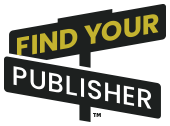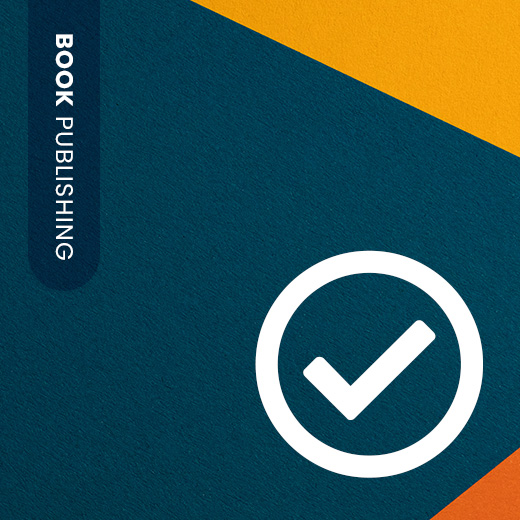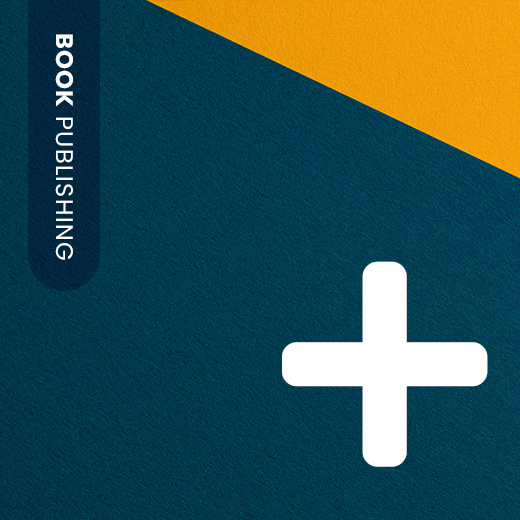Home » Book Publishing » Publishing 101: The Terms Every New Author Should Know
Publishing 101: The Terms Every New Author Should Know
Getting acclimated to the publishing world can be daunting if you’re a debut author. With so many buzzwords and confusing industry jargon, it’s easy to feel lost. Knowing these terms is key to making good decisions and navigating the publishing maze.
To help you get going, we’ve put together an expanded list of vital book publishing terms. These definitions will give you a better understanding of the process and help you talk to the professionals. Here’s what you need to know:
Acknowledgments
A section at the back of a book where the author thanks and acknowledges people who helped with the book. This could be mentors, editors, family, friends and anyone else who supported or inspired the author during the writing process.
Advance
A sum of money that is paid to an author before their book is published. This is negotiated as part of the publishing contract and is often an advance against future royalties. The author has to sell enough copies to cover the advance before they start getting extra royalty payments.
ARCs (Advance Review Copies)
An early proof of a book before the final print run, to generate early buzz. These are sent to reviewers, booksellers, bloggers, and other influencers to get reviews and build up to the book’s release. Also known as galleys, ARCs are key to early marketing.
Appendix
A section at the back of a book that contains extra material, such as additional research, references, or detailed information that supports the main text but isn’t essential to the storyline. Appendices are common in nonfiction books, especially academic or technical books.
Audiobook
A recorded version of a book, usually narrated by a voice actor. Audiobooks are popular because they’re convenient – you can listen to a book while commuting, exercising, or doing other tasks. Producing an audiobook involves technical and creative decisions – casting the narrator and deciding on the tone and pace.
Bestseller
A book that sells a lot of copies in a short space of time. Various organizations – newspapers, magazines, bookstores – have their own definition of what constitutes a bestseller. Being a bestseller can be a huge boost to an author’s reputation and book sales.
Book Distribution
The process of getting published books to retailers, wholesalers, and other sales channels. Good distribution means books are available in physical stores and online platforms. Distribution can be done by traditional publishers, distributors, or self-publishing platforms depending on the publishing route you choose.
Book Proposal
A document used to pitch a nonfiction book idea to publishers or literary agents. A book proposal includes an overview of the book’s content, the author’s credentials, market analysis, and a sample chapter. The purpose of the proposal is to show the book’s potential and convince a publisher to invest in it.
Book Review
A published assessment of a book, usually in newspapers, magazines or online. Book reviews can impact public opinion and sales so are a key part of a book’s marketing. Reviews can be a brief summary or a full critique depending on the publication and the reviewer.
Back Matter
The part of the book that comes after the main text – appendices, notes, references, glossaries, and indexes. Back matter provides extra resources and information that supports the main content and helps the reader get more out of the book.
Brick-and-Mortar Retailer
A physical store that sells books and other products directly to consumers. Unlike online retailers, brick-and-mortar stores offer the benefit of in-store browsing and often have a sense of community through author events, book clubs, and other literary activities.
Copyright
Legal protection that gives the creator of an original work the exclusive right to use and distribute it. Copyright means the author or creator can control how their work is used – reproduction, distribution, adaptation. Per the United States Copyright office, “Your work is under copyright protection the moment it is created and fixed in a tangible form that it is perceptible either directly or with the aid of a machine or device.” Registering your copyright is voluntary; however, in the case your work is stolen or plagiarized, there are added benefits to officially registering.
Design (Book Design, Cover Design)
The process of creating the visual layout and look of a book, inside and out. This includes choosing fonts, formatting the text, and designing the cover. A well-designed book is not only beautiful but also helps readability and marketability. Book design is crucial in attracting readers and setting the tone for the content.
Distributor
A company or individual who distributes books to retailers. Distributors often work with publishers to get books into a wide range of sales channels – independent bookstores to big retail chains and online platforms. Good distribution is key to getting your book out there.
EBook
A digital version of a book that can be read on e-Readers, tablets, and smartphones. EBooks are a convenient and often cheaper alternative to printed books with the added bonus of instant access. The rise of eBooks has changed the publishing industry making it easier for authors to reach global audiences.
Editor
A professional who revises and polishes a manuscript to get it ready for publication. Editors can specialize in different types of editing – developmental editing, copy editing, and proofreading. An editor’s job is to make sure the manuscript is clear, concise, and polished so the author can present their best work.
Footnote
A note at the bottom of a page that provides extra information or cites sources mentioned in the main text. Footnotes are often used in academic and nonfiction books to provide context or credit to original sources without breaking up the flow of the narrative.
Foreword
A short introduction to a book written by someone other than the author. The foreword usually gives insight into the book’s importance or the author’s background to help establish credibility and context for the reader. A good foreword can add value to a book, especially if written by a well-known person.
Front Matter
The part of a book that appears before the main text – title page, preface, foreword and table of contents. Front matter gives important information about the book’s content and structure to help the reader get started.
Imprint
A trade name under which a publishing house publishes books. A single publishing company may have multiple imprints, each with its own brand and target audience. Imprints allow publishers to serve specific markets – children’s books, romance novels, academic texts etc.
Index
A list of keywords, terms, and concepts in the book along with the page numbers where they appear. An index is a must-have for nonfiction books, reference books, and textbooks.
Intellectual Property Rights
The legal rights that give the creator control over their intellectual property – books, music, inventions, etc. In publishing, intellectual property rights determine how a book can be reproduced, distributed, and adapted so the author gets proper recognition and payment.
ISBN (International Standard Book Number)
A 13-digit number is assigned to each edition and format of a book to identify it in the global market. An ISBN is crucial for cataloging, selling, and distributing books, especially in retail and library environments.
Literary Agent
A professional who represents authors in negotiations with publishers. A literary agent helps authors sell their manuscripts to publishing houses, negotiate contracts, and manage rights. Agents often have industry connections and can increase an author’s chances of getting published.
Literary Publicist
A professional who pitches authors and their books for publicity opportunities such as media interviews for print, digital, and broadcast outlets. A publicist can help with press releases and other marketing materials to strengthen the pitch. Publicists have industry connections and can increase an author’s chances of getting media attention.
Manuscript
The original, full version of the book written by the author. The manuscript is submitted to publishers, editors, or agents for consideration. A manuscript can go through several revisions before it’s ready for publication.
Marketing
The activities and strategies to promote a book and sell it. Good marketing is key to a book’s success and can be a mix of online and offline – social media campaigns, book tours, reviews, and advertising.
Networking
Building professional relationships within the publishing industry to get opportunities and support. Networking can help authors connect with agents, editors, and other writers to get valuable insights and potential collaborations.
Nonexclusive Contract
A contract where the author retains some rights to the book and can pursue other publishing opportunities at the same time. Non-exclusive contracts are more flexible than exclusive contracts and give the author more control over their work.
Online Retailer
A company that sells books and other products online – Amazon or Barnes & Noble’s online store. Online retailers give authors a global platform to reach readers and often offer different formats – print, eBook, and audiobook.
Out of Print
This is a book that is no longer being printed by the publisher and is not available for sale as new. When a book is out of print it may only be available through secondhand sellers or as an eBook if the rights have been retained by the author.
Pen Name
A pseudonym or an alternate name used by an author when publishing their work. Authors may use a pen name for privacy, to differentiate between genres, or to create a brand.
Publication Date
The date a book is available for public consumption. The publication date is a key milestone in the publishing process and is often accompanied by promotional activities to get maximum visibility and sales.
Publishing House
A company that buys manuscripts, edits them, and takes on the responsibility of producing and distributing books. Publishing houses often handle everything from editing and design to marketing and sales.
Proofs
Preliminary versions of the book’s pages printed out for final review before mass production. Proofs allow the author, editor, and publisher to catch any last minute errors.
POD (Print on Demand)
A publishing arrangement in which books are printed digitally, only as orders are placed.
Query Letter
A formal, one-page letter used to propose a book idea to an agent or publisher.
Royalty
The percentage of a book’s revenue that goes to the author.
Returns
Copies of a book that are returned to and refunded by the publisher after failing to sell on the bookstore shelf.
Self-Publishing
A method of book publishing where the author assumes the full control and financial risk of producing and distributing his or her own book.
Sell Sheet
A one-page document that provides details about a book for potential retailers and other opportunities.
Shelf Life
The time an unsold book remains on the shelf of a retail store before being replaced.
Small Press
A smaller publishing house that releases books intended for specialized audiences.
Submission Process
Literary agents and publishing houses provide specific instructions or requirements when submitting a work for review or for next steps. It’s important to follow all submission requirements as outlined.
Subsidiary Rights
The rights acquired by a publisher to resell, translate, and reuse a book’s content.
Supported Self-Publishing
A method of self-publishing where the author has access to service packages and support for an upfront cost.
Table of Contents
A section of a book that lists the book’s chapters and opening page numbers.
Traditional Publishing
A method of publishing where a publishing house buys the rights to an author’s book and takes on the responsibility of editing, production, and distribution.
University Press
A type of publishing house owned and operated by a university that publishes academic materials.
Unsolicited manuscript
Manuscript sent to a publisher who did not request it.
Wholesaler
A company, group, or individual who purchases high volumes of books from a publisher at deep discounts and sells them to retailers at midlevel discount.

Don't let your manuscript sit idle
start your publishing journey now!
Get matched with a self-publishing company specifically chosen for you and the book you are publishing.
Don’t let your manuscript sit idle – start your publishing journey now!




